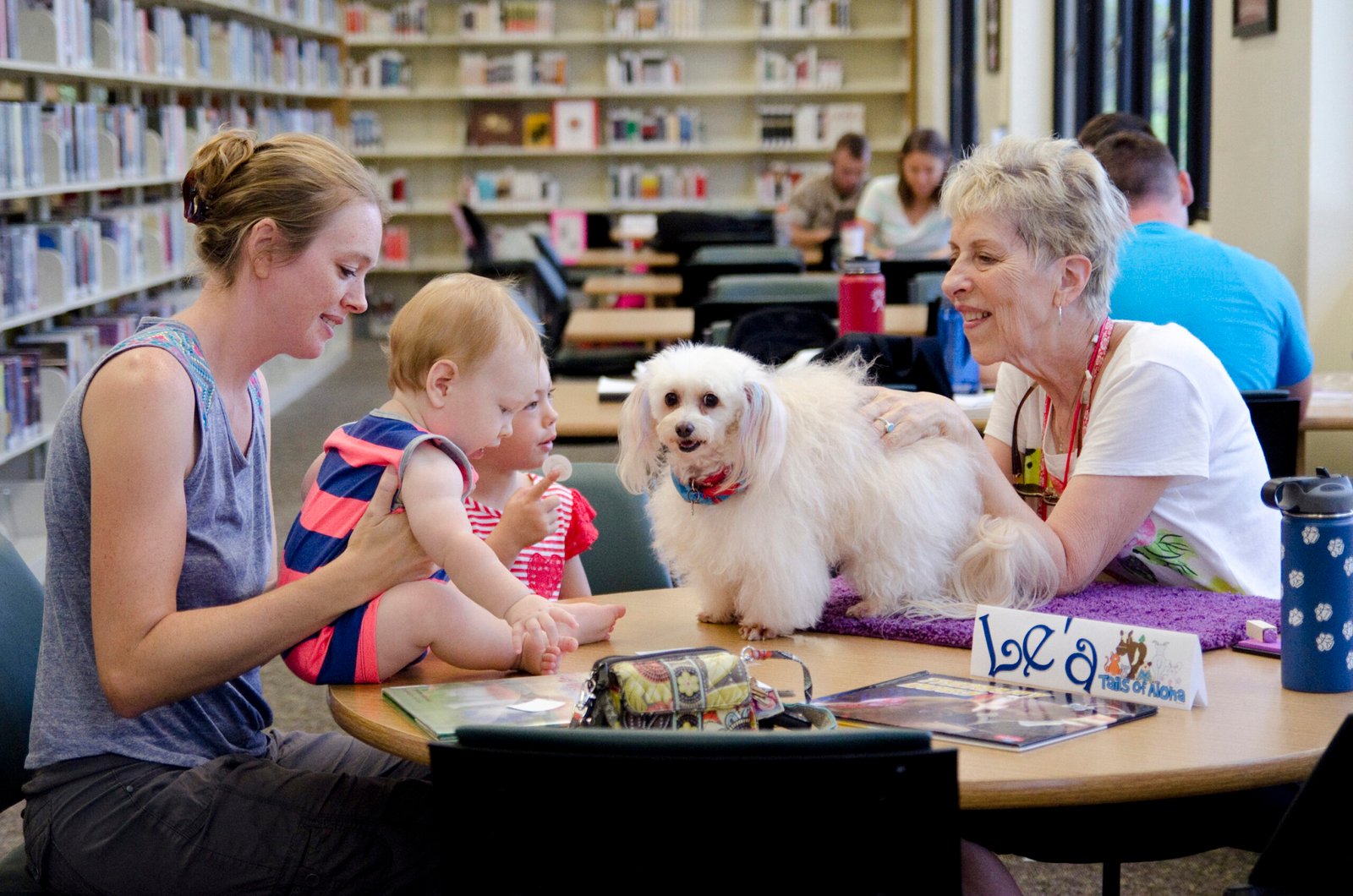You know that moment when your day’s been rough and before you even realize you’re tearing up, your furry companion is suddenly by your side? That’s not coincidence – that’s pure canine intuition at work. Dogs have this uncanny ability to tune into our emotions, almost like they have a sixth sense for what’s going on in our heads and hearts. From wagging tails to cozy cuddles, they’ve got a whole repertoire of comforting moves up their furry sleeves.
Dogs can recognize six basic emotions – anger, fear, happiness, sadness, surprise, and disgust – and process these in similar ways as humans, with changes to heart rate and gaze. Dogs can smell our emotional changes: Due to their elevated sense of smell, dogs are highly sensitive to changes in our body odor that are undetectable to other humans. Dogs can smell the chemical changes that occur when we feel different emotions, such as happiness or anger, and this impacts their response. Some breeds have taken this emotional intelligence to a whole other level.
Golden Retrievers: The Ultimate Comfort Companions

Along with Labradors, goldens are perhaps the most recognizable breed of therapy dog. Visit a hospital or other care facility and you’ll often spot a happy golden retriever popping in to say hi to patients. Goldens have exceptionally calm and even-tempered natures that help reduce patient anxiety. These gentle giants seem to have an invisible emotional radar that picks up the slightest hint of distress.
This breed is gentle, loving, and affectionate, and golden retrievers are well-loved for the bonds they make with their families. They are eager to please and focused when it comes to training and can easily learn new tasks or skills. Additionally, they are very aligned with their owner’s emotions most of the time. When your Golden senses your sadness, expect a warm, fuzzy presence leaning against your leg or a gentle head resting on your lap.
Labrador Retrievers: Your Faithful Shadow
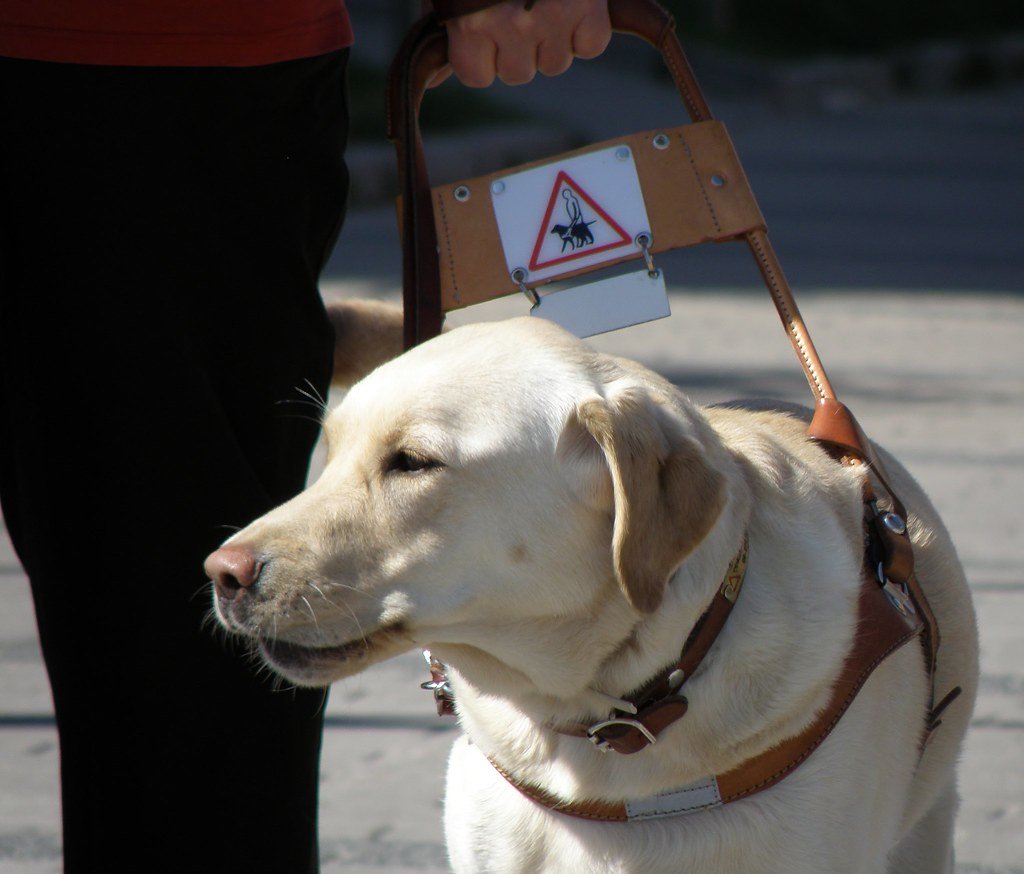
Labrador Retrievers are not only one of the most popular dog breeds in the world but are also renowned for their ability to understand and respond to human emotions. Labs have a gentle and intuitive nature, making them excellent therapy and service dogs. They are known for their ability to sense distress, anxiety, and sadness in humans, often providing comfort with a nudge of their nose or a comforting presence.
Labradors are famous for their affectionate nature and deep empathy. Often used as therapy and service dogs, they instinctively know how to respond to their owners’ emotions. If you’re feeling down, a Labrador will likely stay close, offering comforting nudges and a wagging tail that seems to say, “I’m here for you.” Their whole body language shifts when they detect your sadness – they become your four-legged emotional support system.
Cavalier King Charles Spaniels: Tiny but Mighty Healers

Cavaliers often mirror the emotions of their owners, offering cuddles and comfort when they sense sadness or distress. Their small size and gentle approach make them ideal for being close companions, often found sitting on laps or lying beside their owners to provide comfort. This breed’s loving and intuitive nature makes them particularly good at understanding and responding to human emotional cues, making them excellent emotional support animals.
These little aristocrats don’t just look elegant – they act like emotional therapists in designer coats. Cavalier King Charles Spaniels are a mixture of a spaniel and a toy. They are sweet-tempered and calm and have some athletic traits. They are quick learners and like to please their owners, so training them is really simple. These are considered excellent options for emotional support dogs. When sadness strikes, they’ll become your personal comfort blanket with ears.
Border Collies: The Emotional Detectives
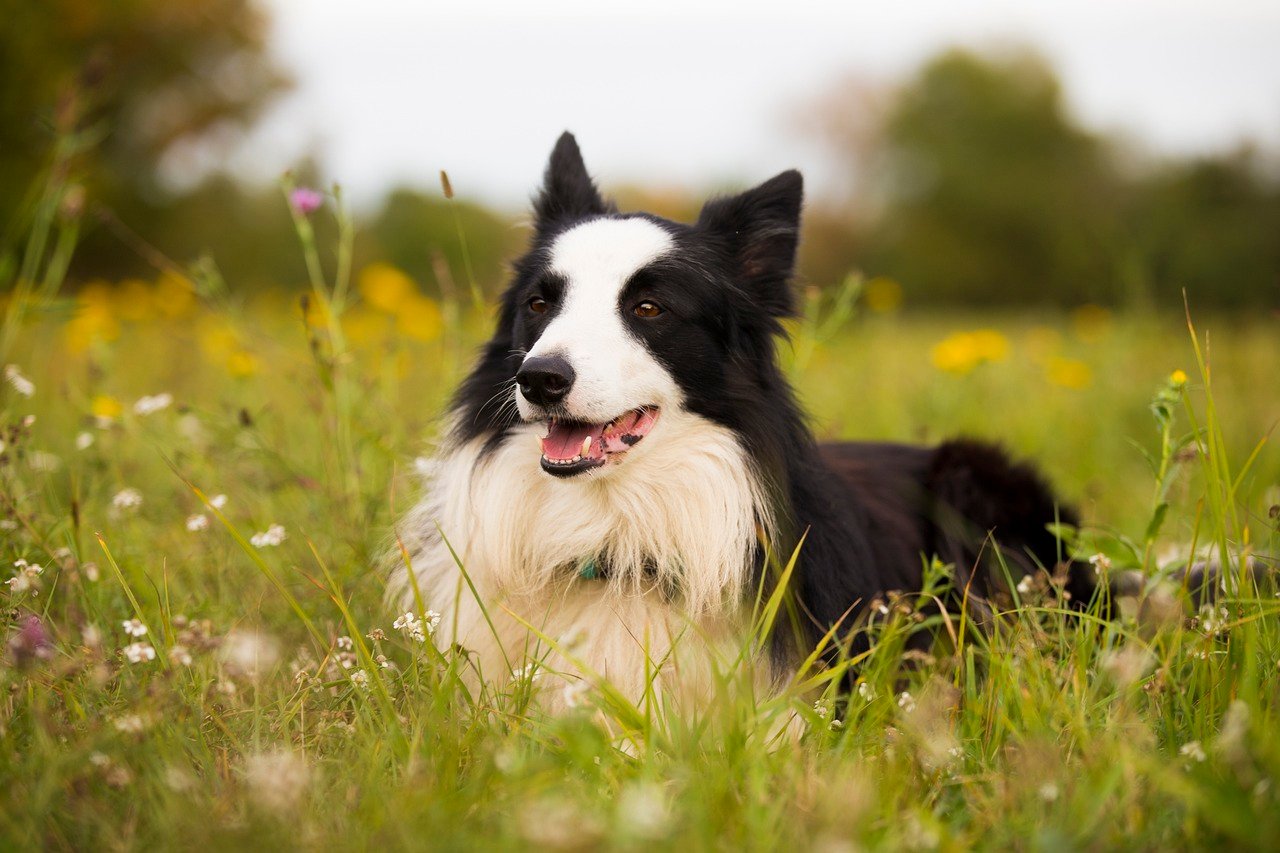
Border Collies are highly intelligent dogs that are quick to pick up on emotional cues. Known for their loyalty and responsiveness, Border Collies will often stay close by if they sense you’re upset, watching over you with a protective stance. Their attentive nature and eagerness to help make them surprisingly adept at offering comfort. They’re also quick to learn routines that involve comforting behaviors, like lying by your side or gently nudging you.
These brainy pups don’t miss a single detail about your emotional state. Border Collies are keen observers who pick up small changes in tone and behavior. They’ll gently prod for attention if laughter helps, or settle in for calm sharing. Their focus turns inward, mirroring your mood and offering silent solidarity. They learn quickly which presence you need playful boost or quiet company. A Border Collie’s emotional connection runs deep.
Poodles: Sophisticated Emotional Readers
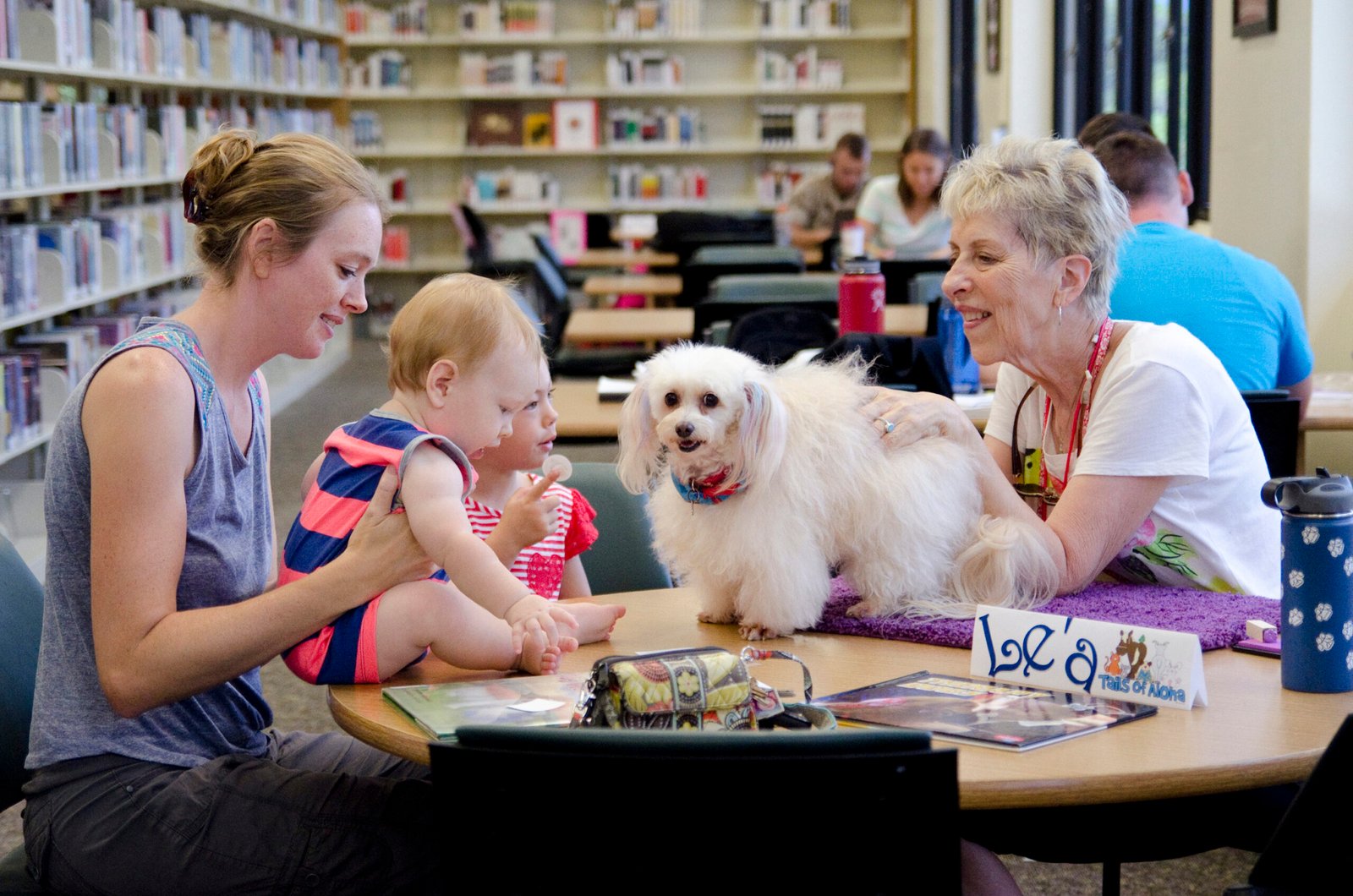
Poodles, which come in standard, miniature, and toy sizes, are highly intelligent and perceptive dogs. Their intelligence extends beyond learning tricks and commands; they are also adept at reading human emotions. Poodles can be quite sensitive to the tone of voice, body language, and general demeanor of their owners, often reacting accordingly to provide support or companionship. They are known for being attuned to their owner’s feelings, showing a remarkable ability to detect stress, sadness, or happiness.
Poodles of all sizes are known for their intelligence and keen emotional intuition. They are extremely responsive to the emotional climate of their home and can become quite sensitive to stress and conflict. Poodles often use their intelligence to engage in behaviors that reduce stress and bring joy to their families, making them not just sensitive but also proactive in caring for their owners’ emotional well-being. This breed’s empathy makes them excellent therapy dogs, capable of navigating complex human emotions.
Pugs: The Natural Mood Lifters

Pugs have a natural gift for making people smile, but they’re also sensitive to their owner’s emotional states. With their expressive faces and big eyes, Pugs seem to know exactly when you’re feeling sad. They’ll stick by you, often nudging or cuddling up to bring a bit of cheer. Their playful and loving disposition, paired with a knack for sensing emotions, makes them ideal for providing comfort when you need it.
Due to their ability to adjust their emotions very well with humans, pugs are considered the best ESAs for cheering up. Pugs are suitable as emotional support dogs because they can sense emotions and cheer up their owner’s mood when they feel sad, low, or stressed. These wrinkled comedians somehow know exactly when to be silly and when to be serious, adjusting their energy to match what you need most.
Yorkshire Terriers: Small Dogs with Big Hearts

Yorkshire Terriers may be small in size, but they have a big heart and a keen sensitivity to human emotions. Yorkies form close bonds with their owners and are often very attuned to their moods and feelings. They are known for their affectionate nature and can be quite protective of their owners, offering comfort and companionship during times of stress or sadness. Yorkshire Terriers are alert and perceptive, often reacting to their owner’s emotional state with cuddles or playful gestures to lighten the mood. Their size makes them ideal for being lap dogs, where they can provide comfort and warmth, making them excellent companions for those seeking an emotionally responsive pet.
The spunky and confident Yorkie thrives on human attention and affection. These little pups have big personalities, and will often try to distract a sad human by playful or goofy behavior. Don’t let their tiny stature fool you – these pint-sized powerhouses pack more emotional intelligence per pound than most larger breeds.
Boxers: The Gentle Protectors

Boxers are known to offer comfort by snuggling or gently placing their head in their owner’s lap when they sense sadness or distress. Their expressive faces and body language can reflect their concern and empathy for their owners. This breed’s protective nature also means they are quick to sense and respond to any emotional threats to their family, making them not just great companions but also empathetic protectors.
Boxers sense sadness and respond with unwavering loyalty. They’ll softly rest their head on your knee or shower you with tongue-and-tail therapy. They’re natural, upbeat companions, but understand when quiet is needed. Their presence is raw and authentic. A Boxer reminds you that comfort and companionship are voices as powerful as words. These muscular sweethearts know exactly when to switch from playful to protective mode.
Collies: The Intuitive Shepherds
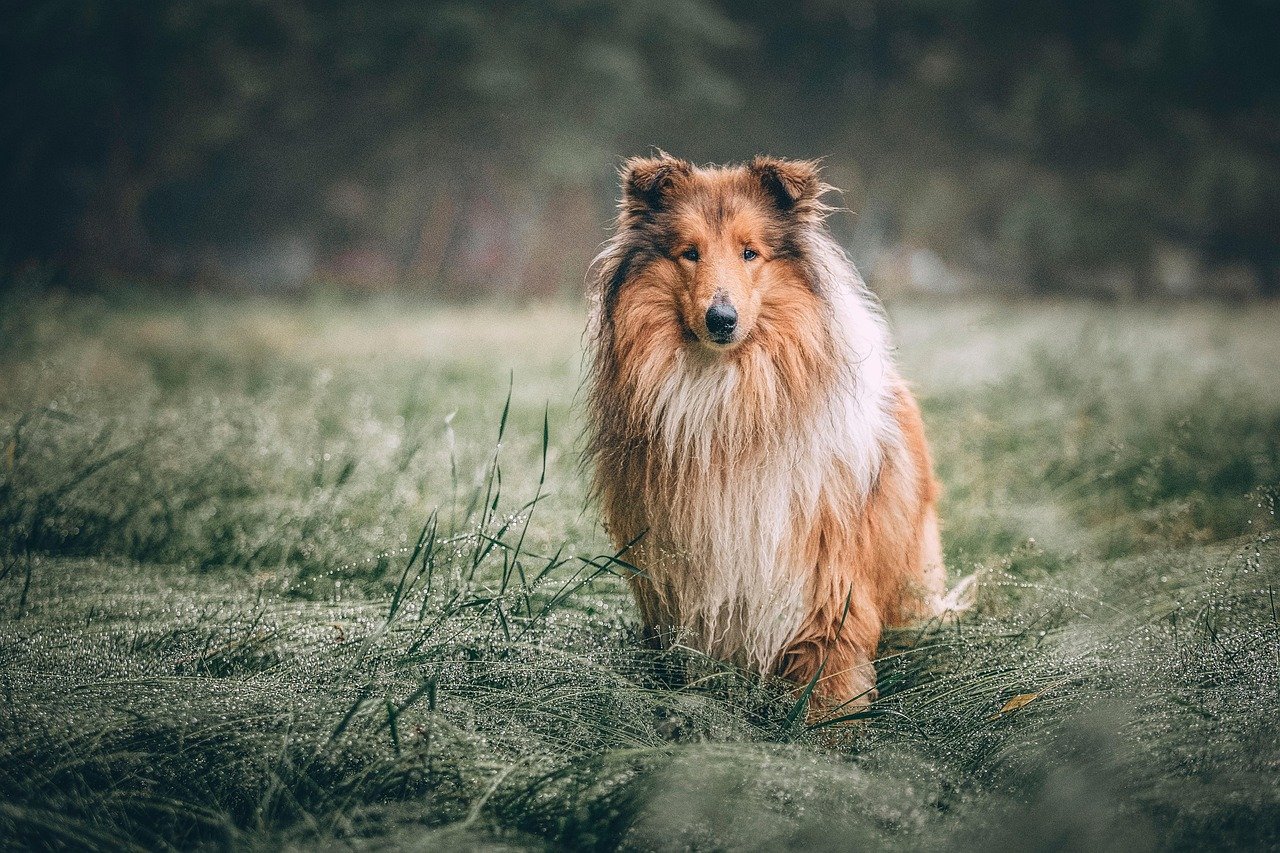
Collies, both Rough and Smooth varieties, are renowned for their sensitivity and ability to connect with humans on an emotional level. They are intuitive and can pick up on subtle changes in their owner’s emotions, often responding with a gentle nuzzle or by simply being present. Collies are attentive and responsive, making them excellent companions for people with emotional or psychological challenges. Their gentle and understanding nature, combined with their loyalty, makes them particularly good at providing emotional support.
They’re gentle and affectionate, often responding with calm, supportive behavior. Collies have an innate sense of responsibility toward their family, which extends to providing comfort during emotional times. These natural nurturers seem to understand that sometimes the best medicine is simply having someone who cares sitting quietly beside you.
Bichon Frises: Fluffy Therapists
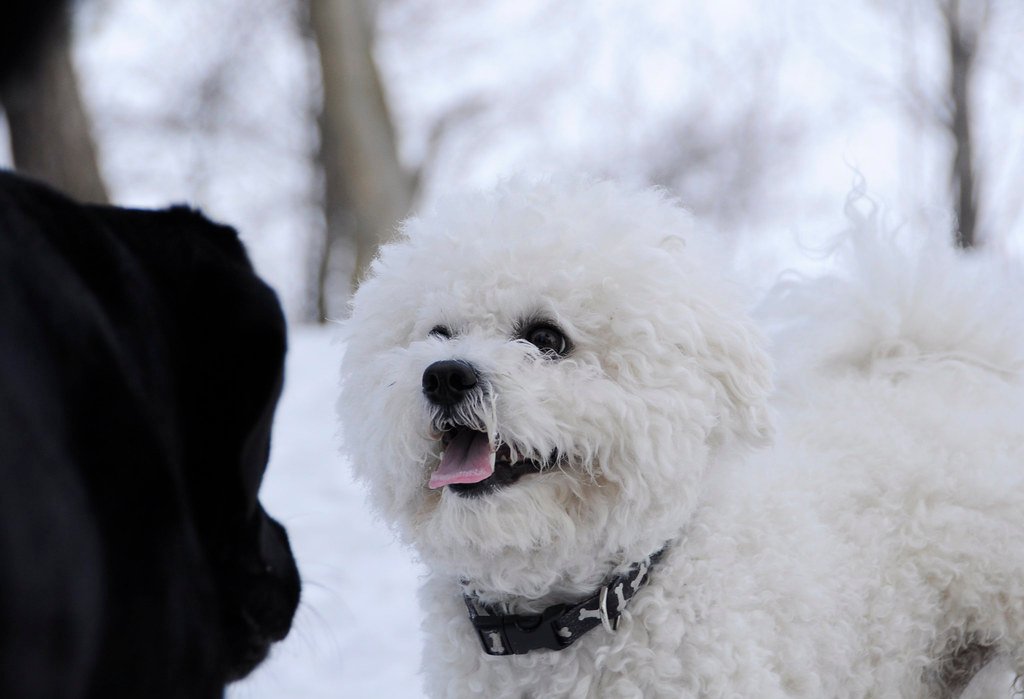
Bichon Frises are cheerful and affectionate, and they’re quick to notice when their owners are feeling down. These fluffy companions are known for their sensitivity and will often respond to sadness by offering cuddles or playful antics to lift your spirits. Their friendly nature and willingness to stay close make them perfect for offering comfort, and their happy demeanor is contagious.
The Bichon Frise is a cheerful and loving breed that is also incredibly sensitive to its owner’s emotions. These dogs are known for their ability to lift spirits and provide comfort during times of stress or sadness. Bichons are very much attuned to their families and will often be found close by when someone is upset, proving to be a fluffy shoulder to cry on. Their playful and joyful nature makes them not only sensitive but also effective at improving the mood in any home. These cotton-ball companions are like living antidepressants with wagging tails.
Newfoundlands: Gentle Giants of Comfort

Newfoundlands are gentle giants with hearts tuned to human emotion. They often stand guard beside you in difficult moments, willing to listen without interruption. Newfoundland is often referred to as a giant breed with a gentle and calm nature. With their immense size and affectionate nature, Purina reports that the Newfoundlands are a wonderful fit for families seeking a calm, comforting therapy dog. Their nurturing instincts and deep sense of loyalty shine in therapeutic settings, especially with children, where they often take on a guardian-like role. Despite their massive build, these dogs exude a quiet presence that brings comfort and reassurance, key qualities in any emotional support animal.
These water-loving teddy bears have mastered the art of silent support. They don’t overwhelm you with energy when you’re down – instead, they offer their massive, warm presence as a living, breathing security blanket. Their gentle nature makes even the biggest problems feel more manageable.
Dachshunds: Small but Emotionally Mighty

Dachshunds are known for their loyalty and strong bond with their owners, making them surprisingly empathetic companions. When they sense sadness, Dachshunds will often sit close or cuddle up to offer comfort. Their small size allows them to snuggle up easily, and their attentive nature makes them quick to respond to emotional cues.
These little sausage dogs might look comical, but they’re surprisingly tuned into human emotions. Their elongated bodies seem perfectly designed for curling up close to their humans during tough times. Don’t underestimate the healing power of a determined Dachshund who’s decided you need comfort – they’ll squeeze themselves into the smallest spaces just to be near you when you’re sad.
Conclusion: Your Four-Legged Emotional Support Team

These soulful breeds show that dogs don’t just fill a home, they fill the emotional gaps we didn’t know we had. Their quiet presence during hard moments speaks louder than words, offering the kind of comfort only a deeply connected pup can give. They sense sadness without needing signals and respond with softness, warmth, and steady companionship. These dogs don’t fix your feelings; they sit with them. And in doing so, they heal. With one of these loyal companions nearby, your heart never feels truly alone.
The magic isn’t just in their ability to sense our sadness – it’s in how they respond with pure, unconditional love. One of the most compelling signs that dogs feel empathy is their response to human crying. Research has found that when a person cries, dogs will often approach them and display signs of concern, such as licking their face, nuzzling them, or staying close by. This behavior indicates that dogs are attuned to human emotional distress and feel compelled to offer comfort. Unlike other animals, dogs don’t just ignore sadness or pain; they respond with actions that provide emotional support, which is a strong sign of empathetic behavior. Whether you’re drawn to the gentle giant Newfoundland or the pocket-sized Yorkshire Terrier, these remarkable breeds prove that sometimes the best therapy comes with four paws and a wagging tail.
What do you think makes these dogs so incredibly in tune with our emotions – is it pure instinct or years of evolution alongside humans?

